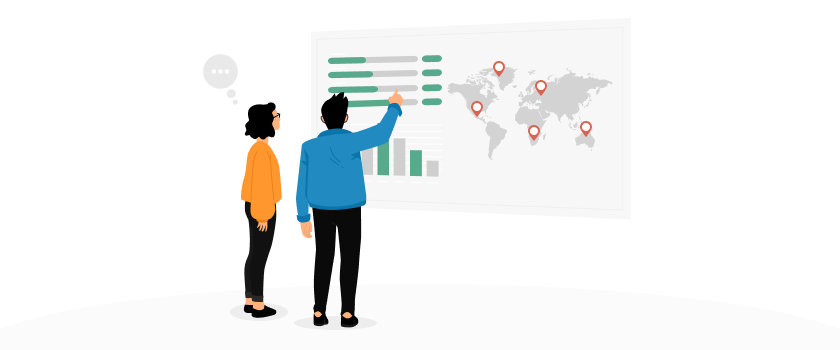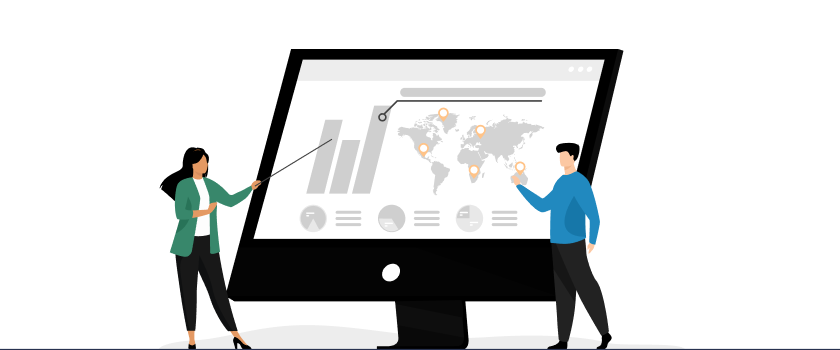Since the arrival of the internet, the world, as we know it today, has become a global village. With this advancement in the internet comes a greater and uninterrupted flow of data that must be monitored and examined by the stakeholders involved.
Due to this free flow of data, many countries are trying to limit data regulation, such as Russia and China, who are already trying to enact data localization laws that would inhibit the free flow of data across the world.
Other countries are also following suit, with data protection and data localization laws being adopted by governments to restrict and control the flow of information to and from their jurisdictions and regions.
But before we relate the benefits of data localization, let us shed some light on what data localization really is.
Table of Content
What is Data Localization? – Explained
Today, the internet has made it possible for data to cross borders in a span of milliseconds, which means that it has become even more important now to regulate and control the flow of data across borders. This is where data localization comes into play.
Data localization is the practice of keeping data in the country or region it originated from. Certain regulations have been enacted that require this regulation and storage of data within the originating region, such as the EU General Data Protection Regulation (GDPR) and several other general data protection laws.
In short, data localization actually identifies the exact geographic locations of where data can or cannot be stored. The laws governing data localization basically come with other related rules like:
- Requirements for storage of data (such as data security in data centers)
- Transfer criteria for certain types of data
- Protection safeguards and measures to protect regulated data types
Why is Data Localization Needed?
Data localization is required by organizations and companies for various reasons, some of which are:
- The national laws of some companies require a mandate which requires certain data to be physically stored on servers within the country
- There is also a need to comply with data protection and data privacy which leads to a need for data localization practices
- Data storage within a country is more cost-effective, especially in cases where a cross-border transfer of data is being practiced
- Some enterprises and data storage technology companies, as well as the public, favor data storage measures and strategies
- Data localization often requires a better IT system and infrastructure as well as strict security measures, especially for data related to business operations.
Benefits of Data Localization
Data compliance and regulation are not the only benefits gleaned from data localization practices. There are a host of benefits that data localization practices deliver:
1. Gives a Protectionism Advantage
Data is an extremely important tool in the fast-paced world of today and it would not be wrong to say that data is the “new oil”. If properly analyzed and interpreted, this data can assume the shape of a backbone for a successful business. Governments that seek to implement data localization want to give a certain “competitive edge” to their local companies.
As these governments enact laws to restrict data flow within their country’s borders, this data will be available for internal use by its own corporations. Hence, this will create a data uniformity that is likely to turn out favorable for the local firms.
2. Greater Transparency in Data Flows
Transparency is an emerging theme among the governing bodies that continue tightening data regulation requirements. As this tight regulation gains momentum, there is likely to be greater data transparency in data flows. This transparency, in turn, is likely to lead to more dividends in companies’ privacy programs in the future.
3. Can Serve as a Taxation Tool
Some data localization and regulation proponents believe that data should be considered a national resource. This implies that the government should have a right to put a tax on the revenue generated from that source. This is similar to the taxation on the inflow and outflow of goods and services, and governments can use the additional taxation from data for the enactment of more social progress programs.
4. Restricts Foreign Surveillance
A pressing concern about the internet is that it allows storing data in regions or countries that may be hostile. For example, there is a prevalent trade war between China and the United States in current times.
In such cases, data related to Chinese citizens may be stored in servers present in the United States, and hence, there is a likelihood that such data might be subject to foreign surveillance. Data localization practices limit this threat of foreign surveillance and allow countries a close watch over the flow of data.
5. Enables Decisions Related to Data Processing Architecture
Data localization practices pertain to cloud computing operations that many organizations worldwide are adopting. These data localization initiatives significantly influence how a business develops and allocates servers in an organization. For example, data localization will allow a company to make important decisions, such as renewing contracts related to the data privacy roadmap over a certain period.
6. Supports Future Privacy Regulations
Data localization is the need of changing times as a sound investment in data localization efforts, such as defining an organization’s data map, is likely to support that organization’s future needs for forthcoming data privacy regulations.
Read More:
7 Ways Localization can Boost Hospitality Business
Language Codes Specific to Localization Industry
How Does Data Localization Work?
Data localization is a concept that is quite simple for companies based in a single country or region and uses the on-premise infrastructure for storing and regulating data. This restriction of data to a company’s data centers means that it can be properly localized when needed.
How Does Data Localization Work?
Cloud Computing and Data Localization
However, cloud computing has emerged as the new norm recently, making data localization more complicated. Today, cloud servers can be located anywhere in the world. Still, companies that rely on cloud computing have much less visibility in their data storage and processing, as the cloud computing vendor handles these decisions.
However, this data localization is possible with cloud computing if the cloud vendor agrees to only process and store data within data centers in a specified region. This is because if a cloud vendor has data centers within a required region, numerous ways ensure a customer’s data remains in the data center.
Example
Take the example of CloudFlare, a global network that is designed to secure websites, data, APIs, and internet connections. Cloudflare takes a unique approach to its Regional Services offerings by proxying Transmission Control Protocol (TCP) connections to data centers in a designated region. TCP is a transport protocol that establishes a connection between two devices such as a computer and web server while ensuring that all data arrives successfully between the two devices.
If the wants to website localize its data through regional services, then this TCP connection is proxied (or forwarded) to another CloudFlare server that is present within a localized region. The requests from a user’s device to the website can travel to the correct region before being processed.
This is akin to a large truck with a trailer. Imagine a user request traveling over TCP like a large truck and each CloudFlare data center as a security checkpoint. In normal circumstances, when a truck arrives at a Cloudflare checkpoint, Cloudflare opens the trailer up and examines it to ensure nothing dangerous is contained within.
However, in the presence of data localization, Cloudflare checks with the “driver” to see if the truck is headed to a certain destination. If the destination is directed to a data localization customer, Cloudflare directs the truck to a different checkpoint, without looking inside the trailer until it has reached that specific checkpoint.
Key Takeaway
Data privacy and regulation is the need of changing times, as the free flow of data requires stringent and strict check and surveillance. This is why countries worldwide are increasingly adopting data localization measures to restrict and regulate the flow of data across borders. Countries are increasingly using data localization to restrict this flow of data across borders and regions, and it is likely that with changing times, the adoption of data localization practices will increase among countries and corporations.
Read More:
Translation and Localization Companies in the World
Localization vs Internationalization vs Globalization










